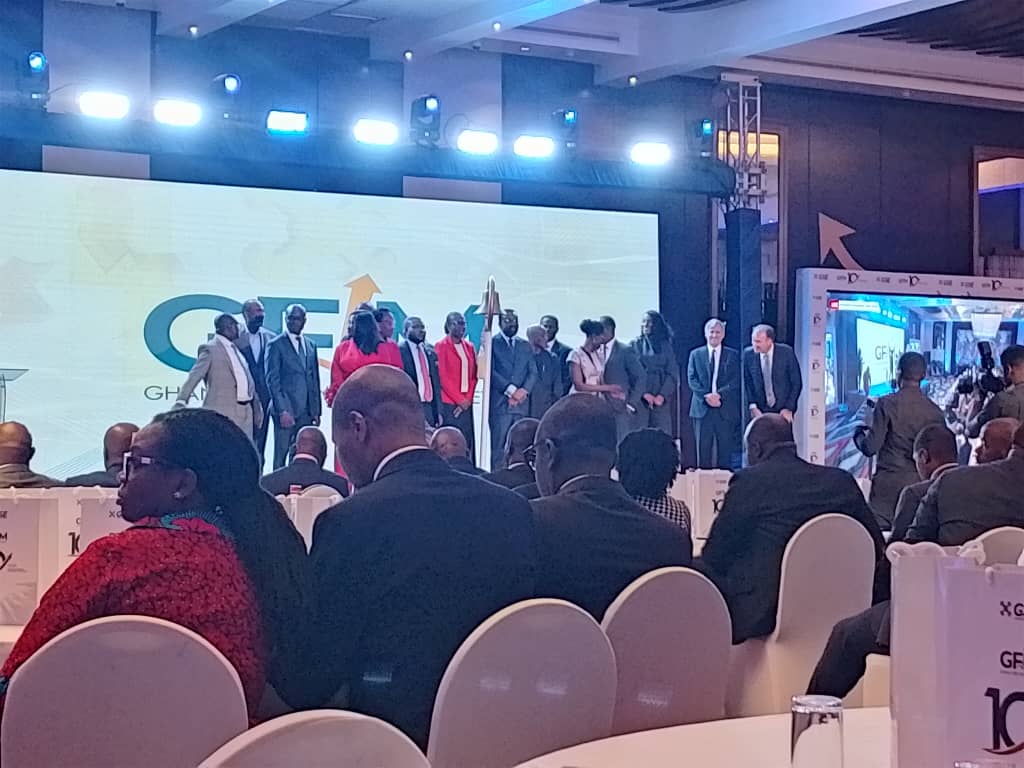GFIM Eyes West Africa Fixed-Income Market Dominance by 2035
The Managing Director of the Ghana Stock Exchange (GSE), Ms. Abena Amoah, has outlined an ambitious roadmap for the next decade of the Ghana Fixed Income Market (GFIM), anchored on technology, innovation, and deeper market participation.
Speaking at the commemoration of GFIM @10 held under the theme, “10 Years of Ghana Fixed Income Market – Deepening Markets, Expanding Possibilities,” Ms. Amoah stated that the Exchange aims to significantly expand Ghana’s capital market landscape over the coming years.
“The next decade of GFIM will be defined by greater product innovation, deeper technology integration, stronger retail participation, and Ghana’s emergence as West Africa’s fixed income hub,” she remarked.
According to her, the Exchange’s bold vision includes increasing the number of Ghanaians holding securities accounts from about 2 million to 10 million using technology, and growing corporate debt issuers from 14 to over 100. She added that the GSE also intends to promote issuances of infrastructure bonds to finance key sectors such as transport, energy, education, and healthcare, positioning GFIM as a major source of capital for Ghana’s sustainable development agenda.

Highlighting the need for stronger policy support to sustain market growth, Ms. Amoah called on government and regulators to approve the listing of viable State-Owned Enterprises (SOEs) on GFIM and other GSE platforms to raise capital and enhance corporate governance.
She further urged the promotion of bond-backed Public-Private Partnerships (PPPs) for infrastructure financing, issuance of municipal bonds, and the introduction of incentives for multinational companies to localise their ownership through listings on the GSE.
Additionally, she appealed for the review of the capital gains tax on listed securities to zero to attract investors and deepen liquidity in the market.
“The Ghana Stock Exchange has been among Africa’s best-performing exchanges over the past two years. But to soar higher, we need the right support from policymakers, regulators, and market participants,” she stated, adding that with the right interventions, “the capital market can truly become ‘the Market for Capital’ – the engine that powers Ghana’s transformation.”
Reflecting on GFIM’s decade-long journey, Ms. Amoah described it as a story of resilience and growth. The market recorded a 4,300% increase in trading volumes – from GH¢5.2 billion in 2015 to GH¢230 billion in 2022 – before suffering a sharp decline to GH¢98 billion in 2023 due to the Domestic Debt Exchange Programme (DDEP).
However, the market rebounded strongly, with trading volumes recovering by 76% to GH¢174 billion in 2024 and reaching GH¢214 billion as of October 2025.
“Today, GFIM stands as one of the most liquid and transparent debt markets in Sub-Saharan Africa, a position earned through consistency, collaboration, and a relentless pursuit of excellence,” she emphasised.









